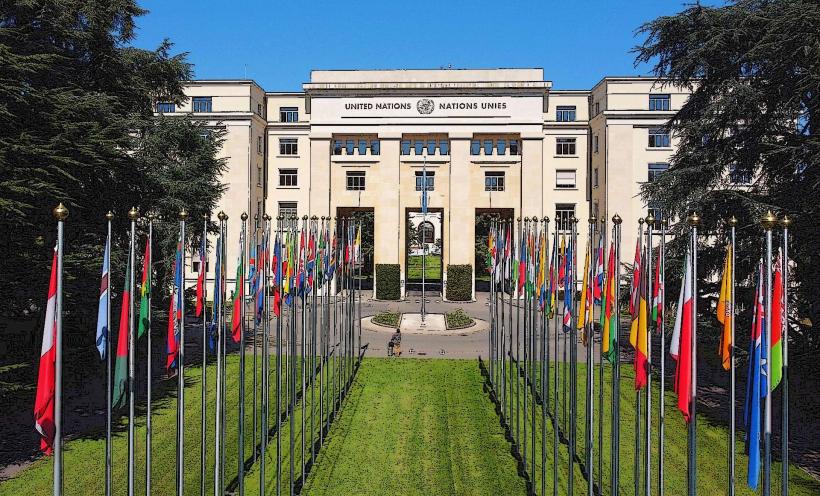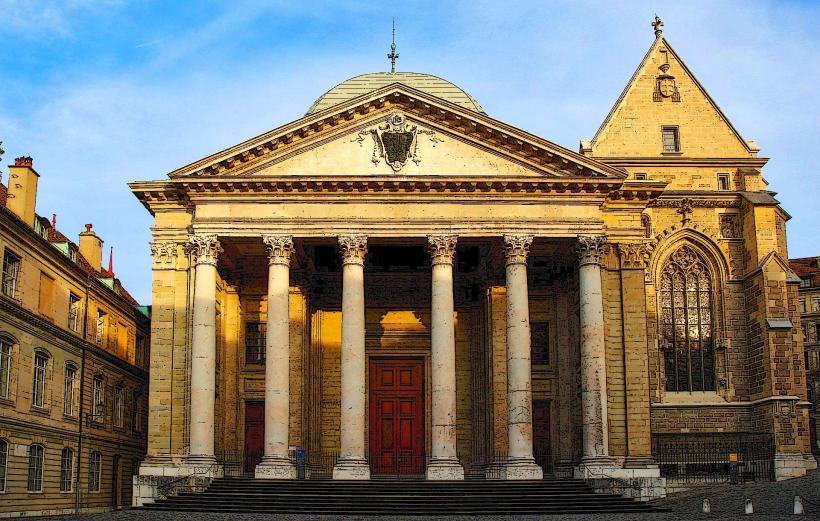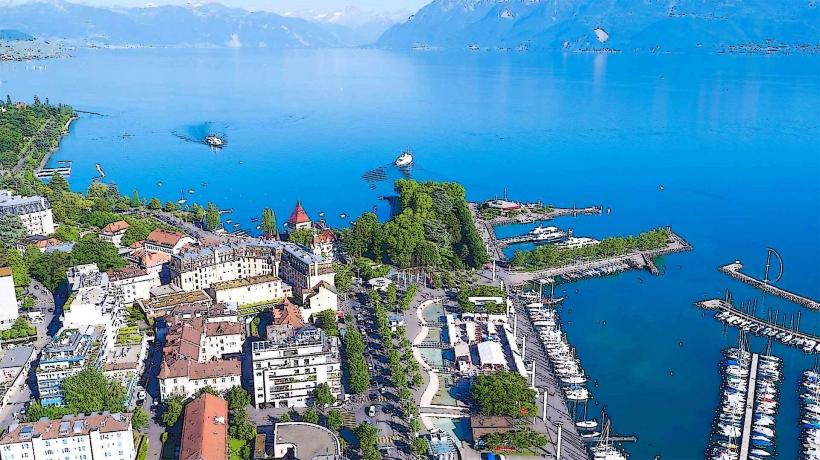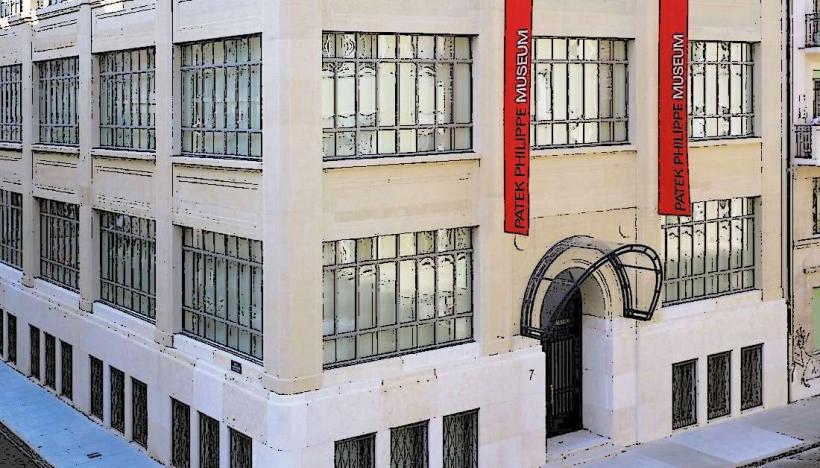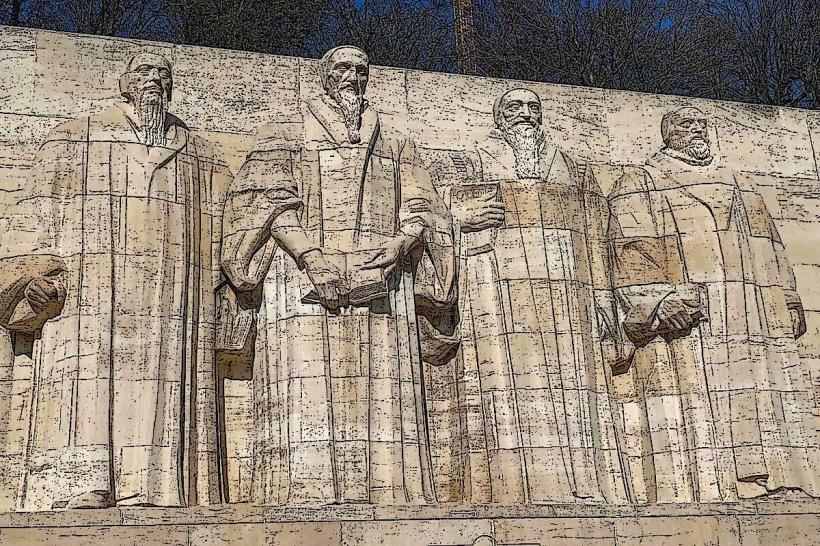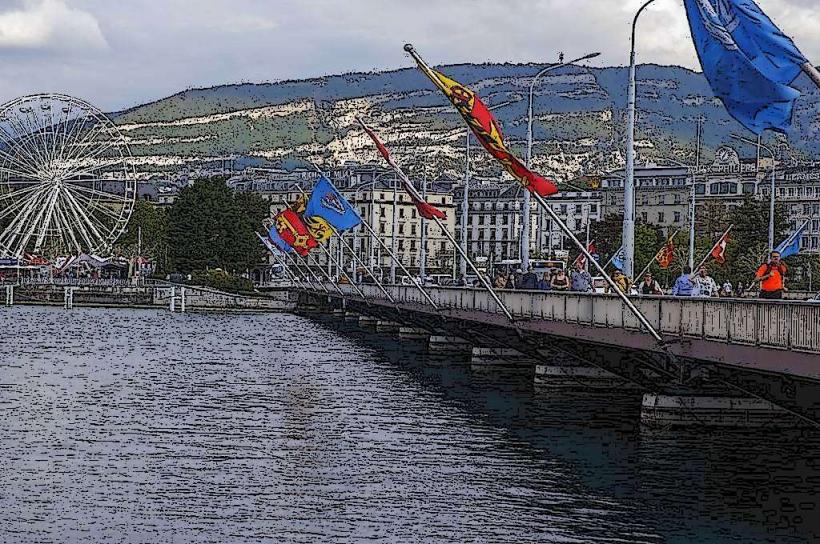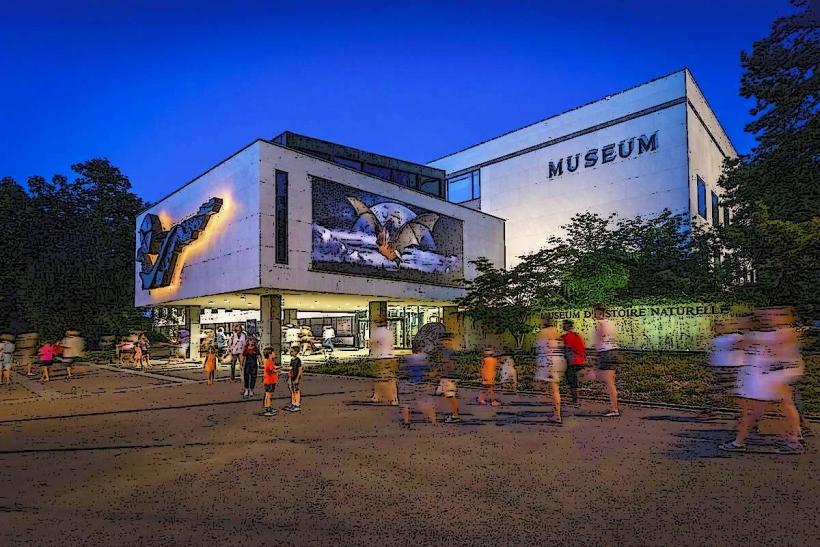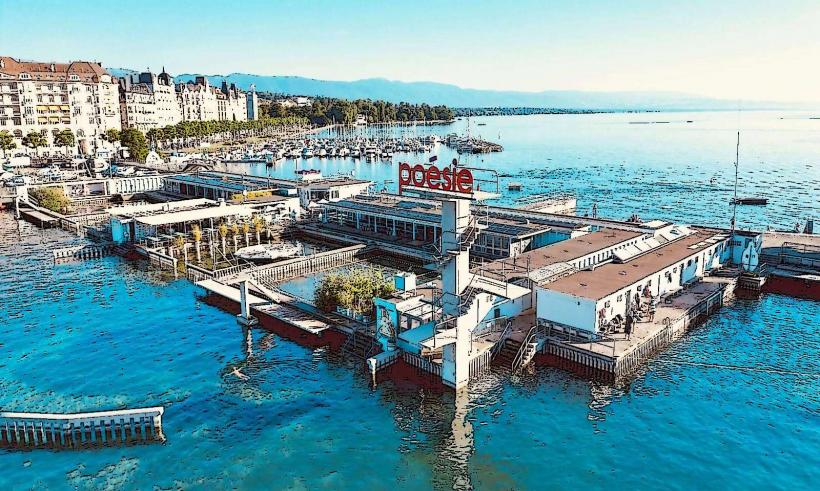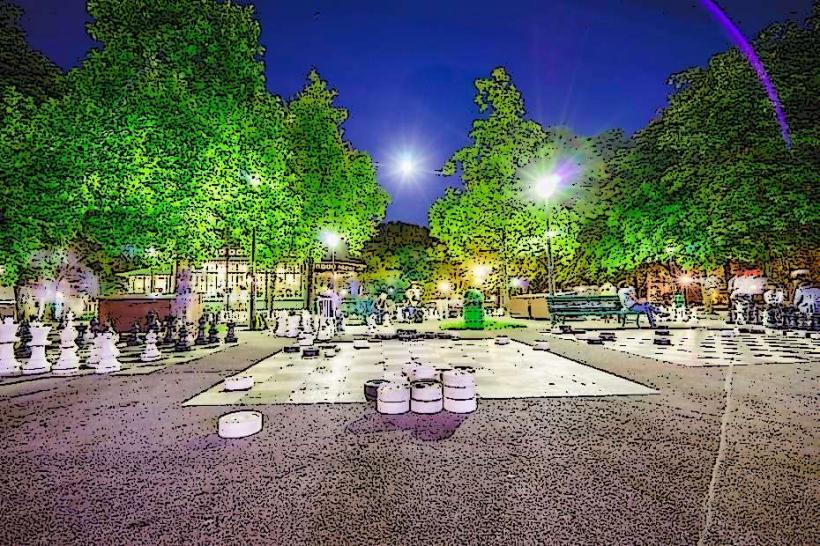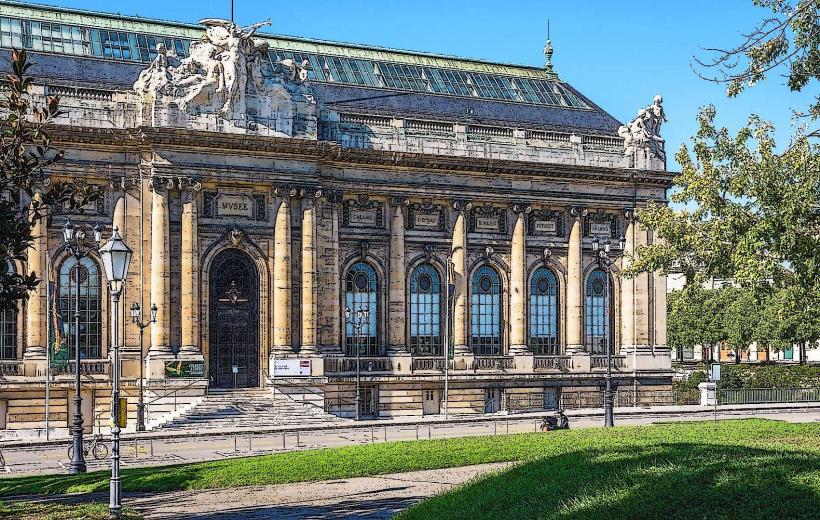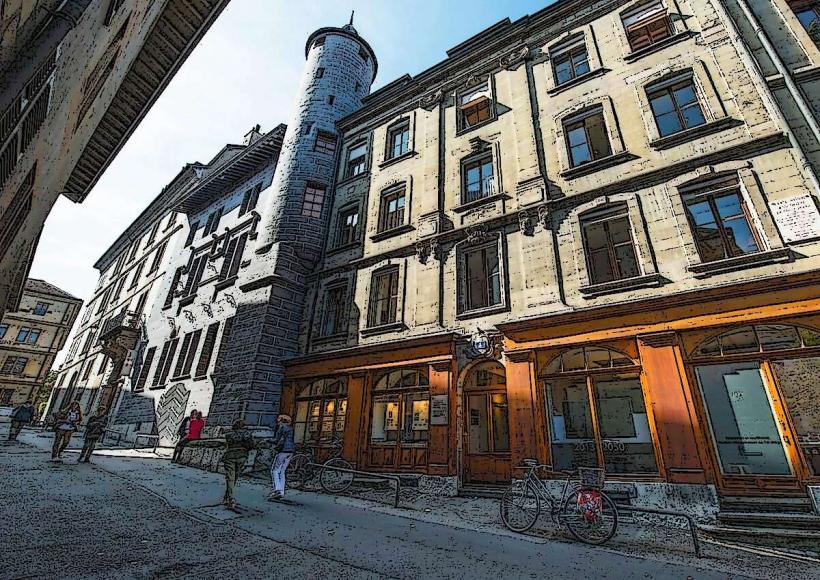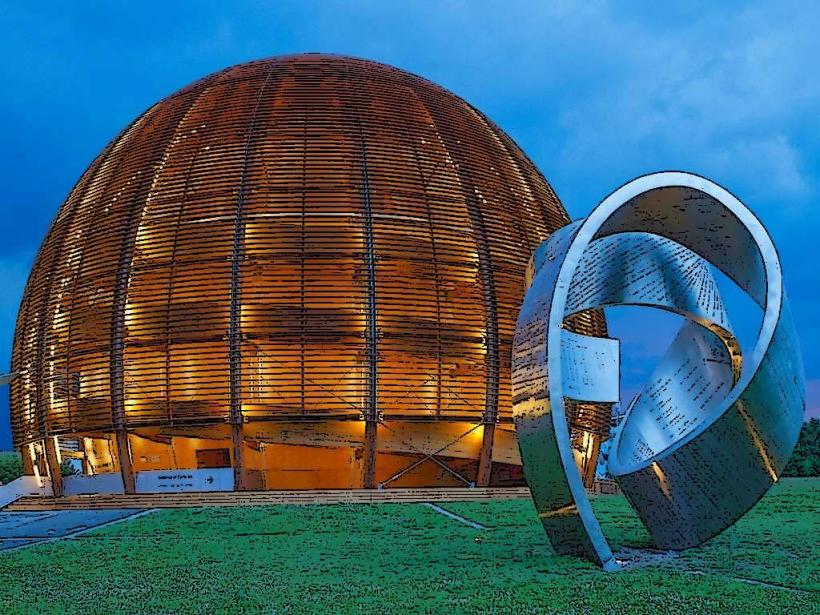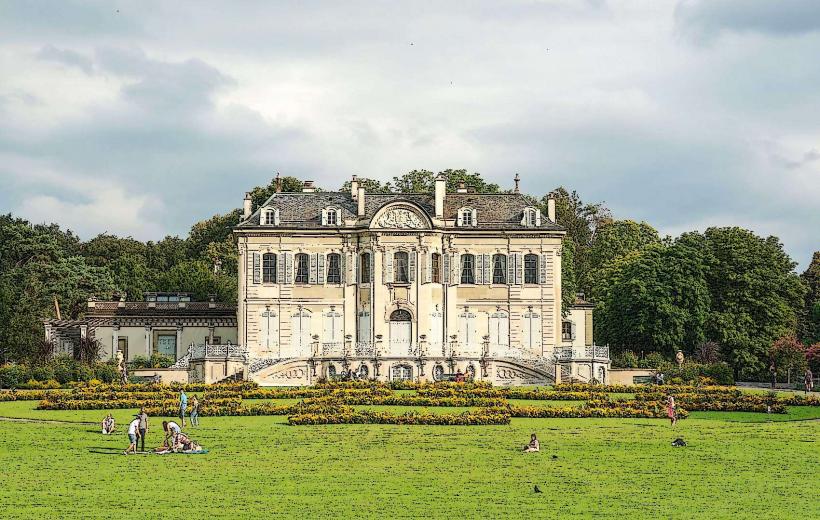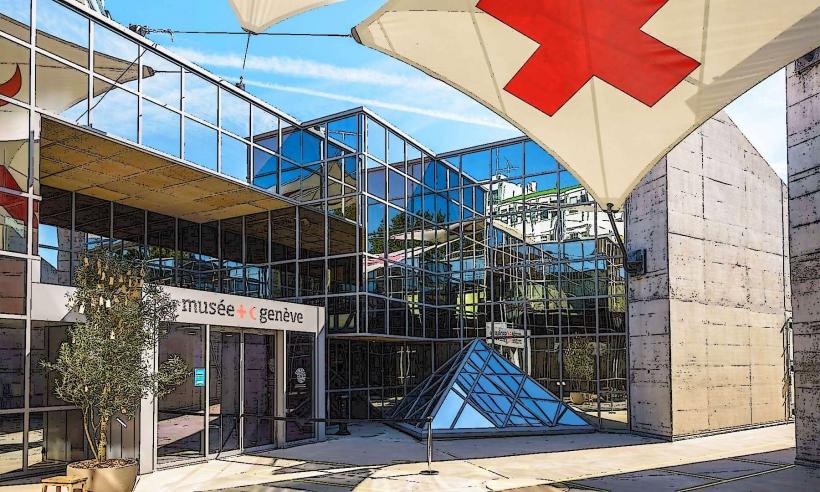Information
City: GenevaCountry: Switzerland
Continent: Europe
Geneva, located in the western part of Switzerland, is one of the country's most cosmopolitan and historically rich cities. It serves as a global center for diplomacy, finance, and culture. Here’s a detailed overview of Geneva, including its history, cultural significance, political role, economy, and lifestyle.
1. Geography and Climate
- Location: Geneva lies at the southwest tip of Lake Geneva (Lac Léman), surrounded by the Alps and the Jura Mountains. It is positioned close to the borders with France, offering a unique blend of Swiss and French influences. The city is situated about 300 kilometers from Zurich and 140 kilometers from Milan.
- Climate: Geneva has a temperate climate, with warm summers and mild winters. Summer temperatures typically range from 18°C to 28°C (64°F to 82°F), while winter temperatures usually hover between 0°C and 6°C (32°F to 43°F). The city experiences a mix of rain throughout the year, with relatively sunny weather in the summer and occasional snowfall in winter. The proximity to the Alps can bring cooler air and snow in the winter months, creating a picturesque landscape.
2. History
- Early Beginnings: Geneva’s history dates back to Roman times when it was established as a settlement. The area was initially inhabited by Celtic tribes before becoming part of the Roman Empire. The city's name is thought to derive from the Celtic word "Genava", meaning "a bend in the river."
- Medieval Geneva: In the Middle Ages, Geneva was part of the Holy Roman Empire and became an important center for trade. During the 16th century, Geneva played a pivotal role in the Protestant Reformation under the leadership of John Calvin, who transformed the city into a hub of Protestantism.
- Modern Geneva: Over time, Geneva developed a reputation as a neutral city and a key international center. After being part of the Duchy of Savoy and later becoming a republic, it joined the Swiss Confederation in 1815 following the Napoleonic Wars. Its position as a neutral ground for diplomacy solidified throughout the 19th and 20th centuries, particularly after World War I when it became the headquarters for the League of Nations.
3. Political Significance
- International Hub: Geneva is often called the "capital of diplomacy." The city is home to numerous international organizations, including the United Nations Office at Geneva (UNOG), the World Health Organization (WHO), the International Red Cross, and the World Trade Organization (WTO). These institutions make Geneva a global center for diplomacy, humanitarian efforts, and international governance.
- Neutrality and Peace: Switzerland’s policy of neutrality is embodied in Geneva, which hosts a variety of international peace negotiations, human rights initiatives, and global summits. Geneva is a city where countries from around the world meet to discuss global issues, resolve conflicts, and promote collaboration.
- Direct Democracy: Geneva is also known for its local political system, which adheres to the principles of direct democracy that are characteristic of Switzerland. The local government involves significant participation from residents through referendums and popular votes, where citizens directly influence legislation and local policies.
4. Economy
- Global Financial Center: Geneva is an important financial hub, particularly for private banking and wealth management. Several multinational banks, insurance companies, and investment firms operate in the city, benefiting from Switzerland’s stable economy and favorable regulatory environment.
- International Trade: The presence of organizations like the World Trade Organization (WTO) and the World Economic Forum (WEF) in the city strengthens its role in international trade and economic policymaking. Geneva is also home to several multinational corporations, especially in sectors such as pharmaceuticals, biotechnology, and commodity trading.
- Watchmaking: Switzerland is globally recognized for its high-quality watchmaking industry, and Geneva is at the heart of this industry. The city is home to several prestigious watchmakers, including Patek Philippe, Rolex, and Audemars Piguet. The Geneva Watch Museum and the Salon International de la Haute Horlogerie exhibition are key attractions for watch enthusiasts.
5. Culture and Arts
- Cultural Institutions: Geneva boasts a thriving cultural scene, with numerous museums, art galleries, and theaters. Notable cultural institutions include the Grand Théâtre de Genève, the Musée d'Art et d'Histoire (Museum of Art and History), and the Museum of Modern and Contemporary Art. The Patek Philippe Museum is a must-see for those interested in horology.
- Music and Festivals: Geneva hosts a variety of music festivals throughout the year, ranging from classical music at the Victoria Hall to contemporary performances at the Geneva International Music Competition. The Fête de l'Escalade is a historic festival commemorating the city’s victory over the Duke of Savoy in 1602 and features parades, performances, and celebrations.
- Cultural Diversity: Due to the presence of many international organizations and expatriates, Geneva is a melting pot of cultures. The city celebrates its multiculturalism through international cuisine, cultural festivals, and community events.
6. Education and Research
- Universities: Geneva is home to the University of Geneva (Université de Genève), one of Switzerland’s leading universities, offering a wide range of programs in humanities, social sciences, law, and natural sciences. The university is closely linked to Geneva’s international organizations, providing a unique environment for students and researchers in international relations, political science, and law.
- Research and Innovation: The city is also a major center for scientific research, particularly in the fields of medicine, environmental studies, and humanitarian sciences. The Geneva School of Economics and Management (GSEM) and the CERN (European Organization for Nuclear Research) are also notable institutions that attract global talent in research and technology.
7. Transportation
- Public Transport: Geneva has an excellent public transport system, including trams, buses, trolleys, and boats on Lake Geneva. The Geneva Public Transport Company (TPG) operates a comprehensive network of routes that efficiently connect the city and surrounding suburbs.
- Geneva Airport: Geneva International Airport (Aéroport International de Genève) is located just a few kilometers from the city center and serves as a major hub for international flights, particularly to Europe, the Middle East, and Africa.
- Biking: Geneva is a bike-friendly city, with a growing network of cycling lanes and bike-sharing programs, making it easy to explore the city on two wheels.
8. Lifestyle and Living
- High Quality of Life: Geneva is known for its high standard of living, with excellent public services, healthcare, and education. The city is clean, safe, and well-organized, making it an attractive destination for expatriates and international professionals.
- Green Spaces: Geneva offers a wide variety of parks, gardens, and green spaces. The English Garden (Jardin Anglais) along Lake Geneva is a popular spot for relaxation and leisure, while the Parc des Bastions and the Botanical Garden offer scenic walks and views of the surrounding mountains and the lake.
- International Cuisine: Thanks to its multicultural population, Geneva offers an impressive array of international restaurants, from French and Italian to Middle Eastern and Asian cuisine. The city also features traditional Swiss fare, including fondue and raclette.
9. Sports
- Winter Sports: Given its proximity to the Alps, Geneva is a gateway to skiing and snowboarding in world-renowned resorts like Chamonix and Verbier. The city has a strong winter sports culture, with many residents enjoying outdoor activities in the winter months.
- Football and Ice Hockey: Football and ice hockey are popular sports in Geneva. The Servette FC football team and the Geneva Servette HC ice hockey team are local favorites. Both teams have a loyal fanbase and are an important part of the city’s sporting culture.
- Water Sports: Lake Geneva is a prime location for water sports such as sailing, kayaking, and swimming, especially during the summer months when the weather is warm and inviting.
10. Social Issues and Politics
- Humanitarian Efforts: Geneva has long been a center for humanitarian efforts. It is the headquarters of the International Red Cross, and the city plays a critical role in global human rights initiatives and refugee assistance. Organizations such as the UNHCR (United Nations High Commissioner for Refugees) and the World Health Organization (WHO) are based in Geneva, making the city a focal point for global social and political issues.
- Political Neutrality: Switzerland’s long-standing policy of political neutrality is deeply ingrained in Geneva’s identity. The city hosts regular diplomatic summits and peace talks, including negotiations in global conflicts and issues of international law.
11. Conclusion
Geneva is a unique city that blends its historical legacy with its modern role as a global center for diplomacy, finance, and culture. Whether you’re visiting for international conferences, exploring its museums, enjoying the scenic beauty of Lake Geneva, or engaging in outdoor activities, Geneva offers a dynamic and enriching experience. Its status as a neutral city makes it a vital player on the world stage, while its high quality of life, cultural diversity, and picturesque landscapes make it a wonderful place to live or visit.


